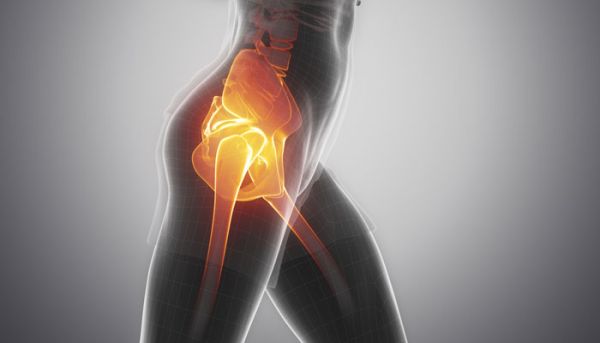
Avascular Necrosis of the Hip and Why You Need to Catch It Early

with Michael Chamblee, MD
You may be surprised to learn that every bone in your body is alive. As they break down and rebuild themselves in a process known as “remodeling,” your bones need a constant supply of blood. What happens to your bones when that blood supply is disrupted? Your bones can die—they become brittle and eventually collapse. When a bone in your body loses its blood supply, the disease is called avascular necrosis (also known as osteonecrosis). While the condition can strike any bone in your body, it most commonly affects the femoral head of the hip.
Who is at risk for avascular necrosis of the hip?
According to Dr. Michael Chamblee, an expert on the hip at Baldwin Bone and Joint, several factors can put you at risk for avascular necrosis of the hip. “It could be from a traumatic injury that causes the hip to dislocate or come out of the socket,” Dr. Chamblee explained. “Other factors that put you at risk are alcoholism, which can result in a decreased supply of blood to the bone, or the chronic use of steroids prescribed to treat other conditions. For some patients I see, it’s idiopathic – it just happens for no apparent reason. The disease can develop in any population, but it’s most common in people ages 40-65—and it affects more men than women.”
What are the symptoms of avascular necrosis of the hip?
If you are affected by avascular necrosis of the hip, the symptoms will gradually become more severe. First, not surprisingly, you will experience hip pain. Then, you’ll feel increasing pain in the groin, especially when walking, bearing weights, and running. As the disease progresses, It will become more and more difficult to stand. If your hip is bothering you, getting an MRI may be a smart move since an MRI will show the bone starting to die while your X-rays will look normal in the early stages, according to Dr. Chamblee.
Why is it important to catch avascular necrosis early?
Dr. Chamblee emphasized the importance of catching avascular necrosis early. If the disease progresses to the stage in which the bone dies and collapses, then the only option is a hip replacement. “However, if we catch it early and there is no collapse yet of the femoral head, we have the option of doing a core depression, which involves drilling holes in some of the femoral head to try to get the bone to start bleeding again and come back to life,” Dr. Chamblee said. “When avascular necrosis of the hip is diagnosed early, core depression can sometimes successfully prevent the collapse of the femoral head.” A member of the American Academy of Orthopaedic Surgeons, Dr. Michael Chamblee is an expert on treating conditions of the hip.
Are you struggling with hip pain and have trouble putting weight on your hip? Call (251) 625-2663 to schedule a medical consultation with Dr. Michael Chamblee or another Baldwin Bone and Joint expert.